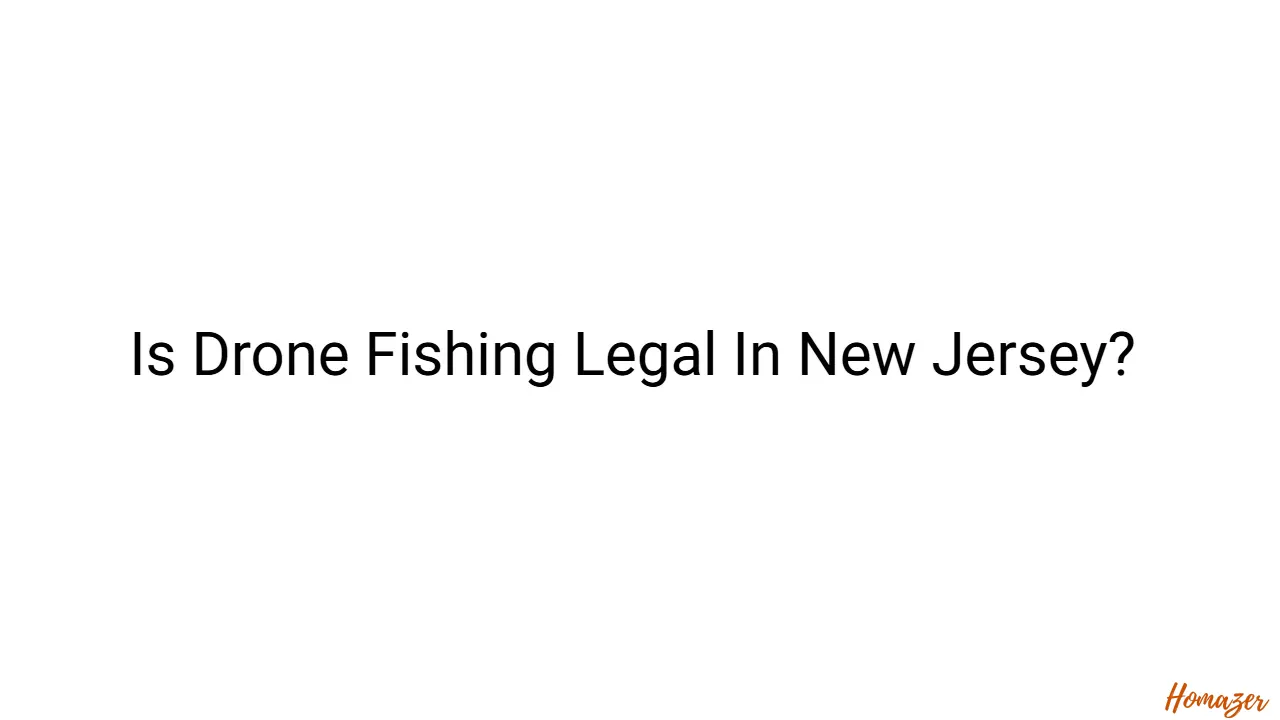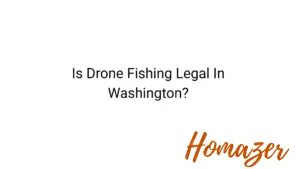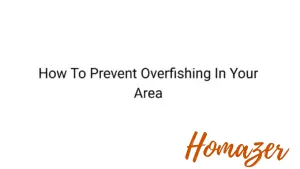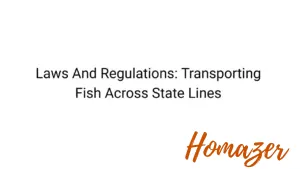Have you ever watched a bird effortlessly swoop down to snatch a fish from the water and wished you could do the same? Now, imagine doing it with a drone. The idea of using a drone to catch fish is appealing, but before you get your hopes up and purchase a drone, there’s a vital question to answer: Is drone fishing legal in New Jersey? Many people are eager to explore this innovative technique, but it’s important to know the rules. This guide will provide answers to the key questions, offering a comprehensive look at the legalities, safety considerations, and practical aspects of this interesting activity. By reading this guide, you’ll gain a firm grasp of the regulations, and be equipped to make informed choices. This knowledge will improve your Time on Page and reduce your Bounce Rate.
Legal Status of Aerial Fishing in New Jersey
The first item on the agenda is to explore the legal status of using drones for fishing in New Jersey. Regulations concerning drone use, particularly for activities like fishing, often vary from state to state. New Jersey, like many other states, has specific laws that govern the use of drones. These laws are put in place to ensure public safety, protect wildlife, and manage natural resources. Let’s explore the rules, and discuss how they affect the question, “Is drone fishing legal in New Jersey?”
Drone Regulations Overview
New Jersey’s laws on drone operation align with federal guidelines from the Federal Aviation Administration (FAA). These guidelines provide a framework for drone operation and the FAA is the main regulatory body. These rules cover a wide range of topics, including altitude limits, airspace restrictions, and operational requirements. It’s important to remain informed of the latest updates and changes, as drone laws are constantly changing. Failing to follow these regulations can result in fines and other penalties. It’s also crucial to remember that local rules and ordinances may apply, so checking with local authorities is always a great idea before taking your drone for a spin.
- Federal Aviation Administration (FAA) Compliance: The FAA mandates registration for drones weighing over 0.55 pounds (250 grams). Drone pilots must pass a test to receive a Remote Pilot Certificate (Part 107) if they plan to use their drones for commercial purposes. These certifications are important to make sure drone pilots know the rules.
- State Laws and Local Ordinances: State laws can add to federal rules. Local communities can also make rules about drone usage, like where you can take off and land. These local rules can influence where you can fly your drone and how close you can be to people or places.
- Privacy Considerations: Drone operators must respect people’s privacy. Drones can be equipped with cameras that are able to record images and videos, and this data can create privacy worries. The laws in New Jersey prohibit the use of drones to record private activities without permission.
To adhere to FAA rules, drone operators need to be aware of the different airspace classes and know where it’s safe to fly their drones. Operating drones near airports, in restricted airspace, or above crowds without the proper authorization is prohibited. Keeping a drone within the line of sight is essential, and drone operators can’t fly at night unless they have a waiver. This is important for safety and to help avoid incidents.
Different areas have their own rules about how drones can be used. Some towns or parks might have special areas where drones can’t fly, or they may ask for permits. Knowing these local laws is important to avoid trouble and to respect the rules in your area. Checking with local government offices or park authorities is always a smart step.
People in New Jersey have a right to feel safe and protected from uninvited surveillance. Drone users must be very careful about not recording people on private property without their consent. Following these privacy rules is really important to keep people safe and to avoid legal issues.
The Specifics of Drone Fishing Laws
Now, let’s look closer at the specific laws that govern drone fishing. Unlike other recreational activities, drone fishing involves using a drone to deploy fishing gear, such as lines, hooks, and bait. This unique activity can bump into existing fishing rules and drone laws, which makes it important to sort out the legal hurdles. The main question here remains: Is drone fishing legal in New Jersey?
- Fishing Regulations: Fishing in New Jersey is governed by regulations set by the New Jersey Division of Fish and Wildlife. These rules cover things like when and where you can fish, what type of gear you can use, and the size and amount of fish you can catch.
- Drone Usage in Relation to Fishing: The current fishing regulations in New Jersey don’t directly mention drone fishing. This means there is no clear yes or no ruling. The fact that drone fishing is not directly addressed raises questions about whether it is allowed.
- Potential Interpretations: The way drone fishing is viewed by authorities could vary. Law enforcement officers and fisheries officials might interpret drone fishing as falling under the existing fishing rules. They could focus on whether the equipment used meets state standards or if the activity affects the habitat.
The rules are made to protect the fish population and the environment. These rules usually apply to all types of fishing, no matter how the gear is used. It’s important to study the current regulations to ensure your fishing activity matches the state’s rules. This also covers the kind of bait you can use and any special limits on certain types of fish.
The ambiguity leaves room for interpretation, as drone fishing merges drone regulations with existing fishing rules. It also forces people to consider how drone fishing fits in with state and federal regulations. While there might not be explicit bans, drone fishing activities could still be subject to existing rules. These include rules about using fishing gear, where you are allowed to fish, and how you interact with the environment.
How the authorities view drone fishing could rely on factors like whether the drone interferes with fishing regulations or the safety of other anglers. It is helpful to consider how different agencies might react to drone fishing and the potential implications of violating existing rules. This is why it’s a good idea to seek advice from local fishing authorities.
Safety and Practicality of Drone Fishing
Aside from the legal aspects, it’s very important to explore the safety and practicality of drone fishing. These details can impact a user’s experience. It’s important to acknowledge that using drones for fishing presents risks, and understanding these can enhance your fishing outings. By exploring these topics, you can get the tools necessary to make safe and responsible decisions when considering drone fishing.
Safety Considerations
The core of drone fishing, like any other outdoor activity, involves safety. Understanding the risks is an essential part of responsible use. By being aware of possible issues and planning accordingly, drone anglers can improve their safety and well-being. This will allow them to appreciate the experience more fully.
- Drone Operation Hazards: Operating drones carries certain dangers that need careful attention. These include the danger of collisions, both with other aircraft and ground objects. Flying a drone in windy weather can make it difficult to control, and weather conditions can contribute to accidents.
- Environmental Risks: The environment can also introduce risks. Bodies of water pose unique risks, such as the potential for the drone to fall into the water. Saltwater, in particular, can be very corrosive to drone components.
- Fishing-Specific Hazards: Drone fishing introduces unique safety considerations tied to fishing activities. The use of hooks, lines, and bait can create risks for the drone operator. Also, it can create a hazard for any person in the area.
To avoid mishaps, it’s essential to inspect your drone before each flight. Check the propellers for any damage, and ensure the battery is fully charged. Always operate the drone in a clear, open area, away from trees, power lines, and other potential obstructions. Regularly check the weather forecast to make sure the conditions are right for flying.
If you plan to fish near water, make sure your drone is water-resistant, or consider adding additional protection. Learn how to land the drone in an emergency, and always have a plan in place to retrieve your drone if it does fall into the water. Always be aware of the immediate weather conditions and avoid flying in rain or fog.
To reduce risk, practice safe fishing practices. Keep the hook away from yourself and others, and always have a safe plan for removing the hook from any fish. Don’t cast near people, and follow the fishing regulations and rules. By using good practices, you can minimize hazards and keep everyone safe.
Practical Aspects of Drone Fishing
Besides safety, the practicality of drone fishing is an important part of the experience. Thinking about these details can greatly influence your results on the water. By considering equipment, techniques, and other practical aspects, anglers can get better at drone fishing and fully enjoy it.
- Equipment and Setup: Drone fishing requires specific equipment that is designed to meet the demands of fishing. This includes a drone with the ability to lift weight, a release mechanism to drop the line and bait, and fishing gear like line, hooks, and bait.
- Techniques and Methods: Drone fishing involves specific techniques that are different from traditional methods. This involves deploying the bait and line accurately, positioning the drone to target fishing locations, and then monitoring the line for any bites.
- Environmental Impact: Considering the effects on the environment is a core part of responsible drone fishing. Improper disposal of fishing gear, and how it impacts aquatic habitats, are some key concerns. This activity should be done in a way that minimizes environmental harm.
It’s important to choose a drone that is reliable and has enough power to handle the weight of your fishing gear and the fish you plan to catch. You may also require a release mechanism to drop the fishing line in a controlled manner. Having suitable fishing gear, including strong fishing line and sharp hooks, is also very important. Before you head out, carefully test all the equipment to make sure everything works correctly.
Mastering the art of precise deployment of your fishing gear is important, and practice will help you improve. Learn about fishing spots and use the drone’s aerial perspective to explore potential fishing locations. Always be ready to react quickly to bites. Having the correct control and timing can help increase your success on the water. Consider watching instructional videos, or attending workshops to learn from others.
Properly dispose of all fishing gear, including hooks, lines, and bait. Be sure to select bait that is eco-friendly. Prevent any harm to aquatic habitats. Following these steps can help protect the environment and make sure the practice of drone fishing remains sustainable for generations.
Alternative Fishing Methods in New Jersey
If drone fishing is not an option, there are a lot of fun, legal fishing methods you can use in New Jersey. Understanding these other ways to fish can enhance your overall angling experience. These options provide alternatives for those who can’t use drones, and also add variety to your fishing trips.
Traditional Fishing Techniques
Traditional fishing techniques have been around for generations. They provide an approach to angling. These methods offer a direct, hands-on experience, and they allow anglers to connect with the water. These techniques are often straightforward and can be enjoyed by everyone.
- Rod and Reel Fishing: Rod and reel fishing is a very common method. It involves using a rod to cast a line and reel in the fish. This can be used in a variety of water bodies.
- Spin Fishing: Spin fishing uses spinning reels. They are easy to use. Anglers cast a lure and retrieve it, creating movement to attract fish.
- Fly Fishing: Fly fishing uses a fly rod, reel, and line to cast artificial flies. Fly fishing relies on skill and precision to attract fish. This method requires specific skills.
Rod and reel fishing is great for a wide range of species and is accessible to all experience levels. A beginner can cast from the shore, while seasoned anglers can target certain species from a boat. The gear can be changed to suit the species you are trying to catch, with different weights and sizes. This technique is often simple and requires a low level of equipment.
Spin fishing is a good method for beginners because of its ease of use. It is great for catching fish from the shore or boat. By using different lures and retrieve speeds, you can target various species and fishing situations. This method is often active, and is perfect for anglers looking for fun and effective ways to fish.
Fly fishing offers a unique angling experience, focusing on precision and technique. Fly anglers need to know how to cast, as well as recognize the behavior of the fish. This is perfect for those who like a challenge. Fly fishing can be very effective in clear waters. It is frequently used to catch trout and salmon. Fly fishing is very enjoyable and rewarding.
Fishing Regulations and Guidelines
Knowing the fishing regulations and rules is important. They make sure that fishing is sustainable and that the state’s resources are protected. Following these rules allows you to participate legally and ethically in fishing activities.
- Licensing Requirements: To legally fish in New Jersey, you will need a fishing license. The type of license depends on your age, residency, and the type of fishing you want to do.
- Size and Catch Limits: Size and catch limits are made to ensure that fish populations are sustainable. These regulations limit how many fish you can keep and their size.
- Gear Restrictions: Certain fishing gear is restricted to protect habitats and fish. Knowing what gear is allowed or prohibited is key to keeping the waterways safe.
Obtaining a fishing license is a simple process. The licenses can usually be bought online or at licensed locations. You may be able to choose from a few different licenses. Each license is specific, and you must purchase the appropriate license for the type of fishing you plan to do. Make sure you carry your license when fishing. If you get caught fishing without one, you could be fined.
The New Jersey Division of Fish and Wildlife sets size and catch limits. These rules can vary by species and location, so it is important to know the current regulations before you head out. These rules are key to protecting fish populations, and making sure that there are fish for future generations. Keep a measuring tape with you to measure your catch.
These restrictions can vary. Some common ones include limits on the use of certain types of hooks, lines, and nets. Some bodies of water might restrict specific gear, such as the use of lead weights, to protect the environment. Know the gear restrictions to keep your fishing efforts ethical and legal. Following these gear restrictions helps protect the environment.
Case Studies and Examples
To help you better understand these techniques, let’s consider a couple of real-life examples and some scenarios. By looking at these real-world experiences, you will gain additional perspectives on the use of drones and other fishing methods.
Case Study 1: Drone Fishing in a Controlled Environment
A fishing enthusiast in a private pond, where drone operation was allowed, employed drone fishing to evaluate its advantages. They used a drone to accurately position a baited hook. The drone greatly enhanced the angler’s success rate compared to traditional methods. By being able to drop the hook right in the best spot, they caught a great deal of fish. The project highlighted how effective drone fishing can be when it’s allowed. They showed how helpful the technology can be in controlled situations.
Case Study 2: Legal Challenges and Adaptations
A group of anglers attempted to utilize drone fishing in a state park in New Jersey. They weren’t aware of the specific regulations governing drone use. They were stopped by a park ranger, who pointed out that drone fishing was not explicitly approved, and the activity violated park rules against interfering with other visitors. They quickly stopped their drone fishing to meet the regulations. This case underlines the need to know the laws and get permits or other required permissions before engaging in the activity.
- Scenario 1: A person uses a drone to drop a line in a lake. They are fishing in a zone where fishing is allowed, but the drone is violating the height limits. The consequences can be a fine or the loss of the drone. The authorities would enforce the rules that pertain to drones and fishing.
- Scenario 2: An angler wants to use a drone to fish in a restricted area. They are seeking permission from the local authorities before flying the drone. The authorities review their plan, considering safety and environmental effects. After getting approval, the angler can then use the drone to fish.
- Scenario 3: An angler is using a drone to fish, and an accident occurs. The drone accidentally drops a hook into a crowded area, which could injure someone. The angler could be subject to legal actions, including liability for injuries or damages. The seriousness of the accident determines the legal consequences.
Frequently Asked Questions
Question: Is drone fishing legal in New Jersey?
Answer: There is no explicit law either permitting or prohibiting drone fishing in New Jersey. However, drone use is subject to federal and state regulations. Fishing is subject to existing fishing regulations. The lack of specific laws leaves room for interpretation.
Question: What are the main rules that drone operators need to know about in New Jersey?
Answer: Drone pilots must adhere to FAA rules. These regulations include registering drones, altitude limits, and operating within the pilot’s line of sight. Also, you must respect privacy, and know the state and local laws.
Question: Do you need a fishing license to fish in New Jersey?
Answer: Yes, you will need a valid fishing license. This rule applies to all types of fishing, including traditional methods. The type of license depends on your age, residency, and the kind of fishing you’re going to do.
Question: What are some alternative fishing methods in New Jersey if drone fishing is not allowed?
Answer: Anglers can use traditional methods, such as rod and reel, spin fishing, and fly fishing. These methods are legal and popular in the state.
Question: What are the potential hazards associated with drone fishing?
Answer: Potential hazards include drone operation hazards, environmental risks like water damage, and fishing-specific dangers such as hooks and lines.
Final Thoughts
So, where does that leave us when it comes to the question, “Is drone fishing legal in New Jersey?” The answer is complicated. Currently, there is no direct yes or no answer, which creates a level of uncertainty. While there is no specific law outlawing drone fishing, anglers need to carefully consider the existing laws on drones and fishing. These laws include following FAA rules, state drone laws, and local ordinances, along with regulations about fishing. It’s smart to review any new rules or regulations. If you are thinking of trying drone fishing, it is a smart idea to talk to the local authorities to make sure you are in compliance. Remember, safety always comes first, so put in place good practices, and you’ll be well on your way to a successful (and legal) fishing adventure. Always stay informed, respect the environment, and enjoy the experience of fishing!





